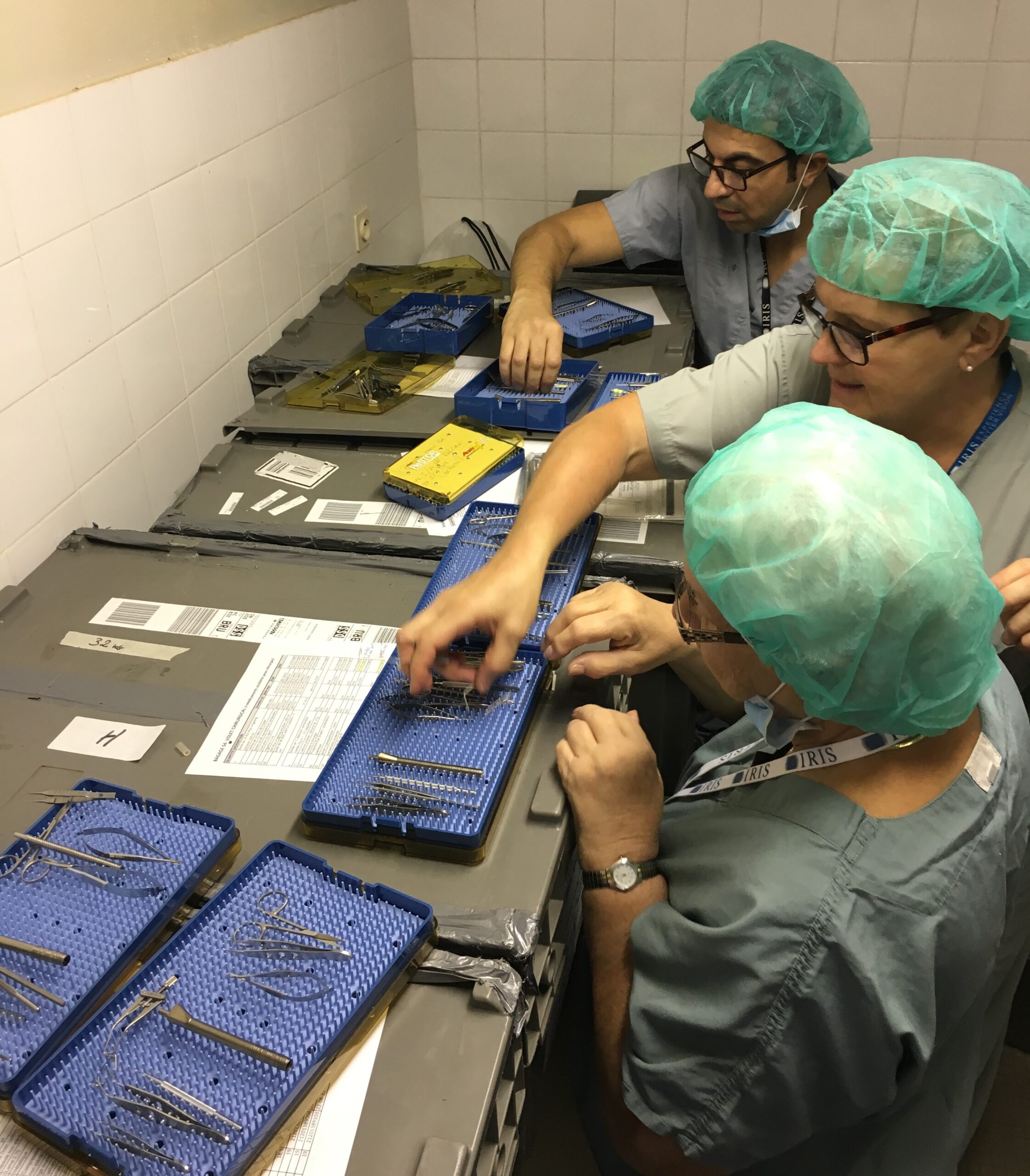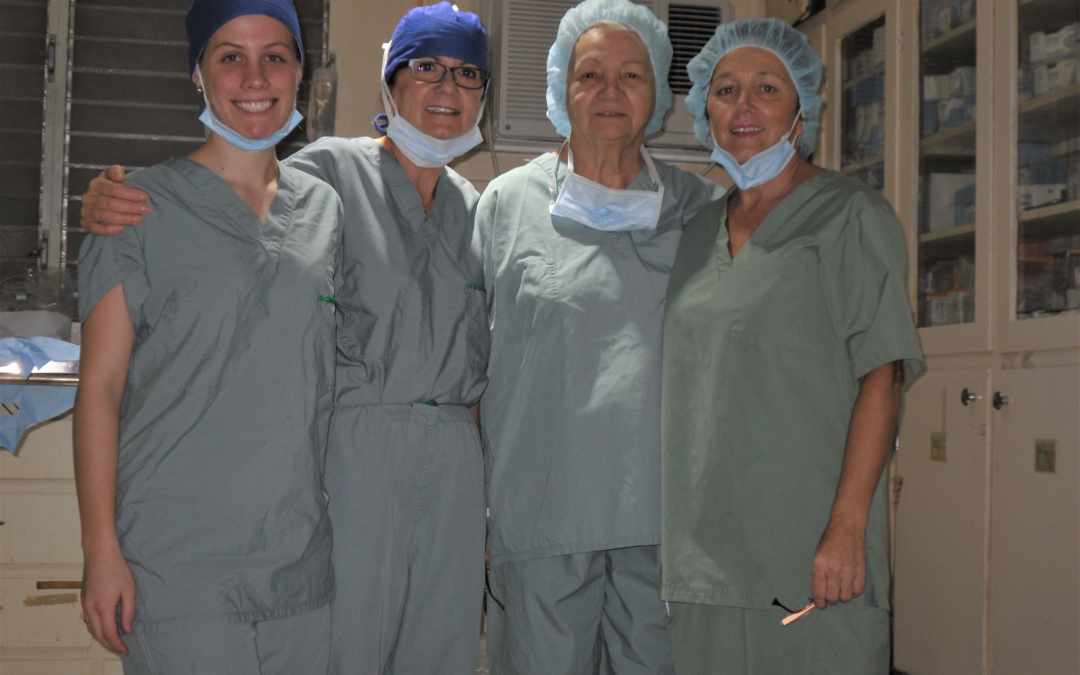Meet Andrée Coulombe, nurse and IRIS Mundial volunteer. Andrée has participated in nine IRIS Mundial missions, the first of which was in 2004. Volunteers who know her well would say that she is determined, efficient and professional. Feeling at home in Peru, Andrée is always ready to put things into perspective in order to build cultural bridges with the volunteers. Marie-Claude Cossette, IRIS Mundial volunteer and long-time friend of Andrée, told us how she is a model of calmness, even with a tarantula in their room in the Amazon! Operating room nurses specializing in eye surgery, such as Andrée, are a rare commodity and are essential during a one-time project with a surgical component. With a career of more than 62 years behind her, Andrée is the dean of IRIS Mundial, and certainly the most experienced!
Here is a touching testimony from Andrée for the 20th anniversary of IRIS Mundial:
“In the fall of 2004, IRIS Mundial was preparing an ophthalmological mission to Iquitos in the Peruvian Amazon. Through a friend, I met Jean-Pierre Tchang, the heart and soul of the project, and it was the start of a wonderful adventure that continues to this day.
With a dynamic team, which is different for each mission, I have travelled to Peru five times, to Mexico, Haiti and finally to Africa (Benin and Senegal) twice. The excitement felt before each departure is always replaced by the satisfaction of a job well-done upon our return back home. You might ask me why I involve myself in these kinds of projects? The answer is quite simple: the need for helping others is in my DNA. At the very beginning of my nursing career, I worked for two years in a dispensary in the Amazon. In a way, when I participated for the first time in the IRIS Mundial one-time mission to Iquitos, I reconnected with my past.

For five days, we operated on about fifty patients, including siblings (two teenagers and a 7-year-old girl), all suffering from cataracts. Restoring sight to the elderly was obviously a joy for the whole team, but allowing young people to see for the first time left us speechless. They will finally have a normal life, will be free, will be able to go to school and hope for a better future. By treating these helpless children that no doctor wanted to operate, I thought of my own daughters whose every need and want is catered to promptly. These situations give us a new perspective, and they occur during each mission.
The language barrier can sometimes complicate the process in the operating room. For example, in an African village where there are 52 dialects, even with a local interpreter, creativity must be used to ensure an aseptic and safe environment for the patient. I think that goodwill and calmness remain the cornerstones of successful communication. Things would be so much easier and less uncomfortable if there were no barriers but these would never become an obstacle in organizing future missions.
The various IRIS Mundial missions I participated in will stay with me in the form of unforgettable memories. I know that thanks to our efforts, we left a piece of us in those villages where the blind can still see the sun.”





